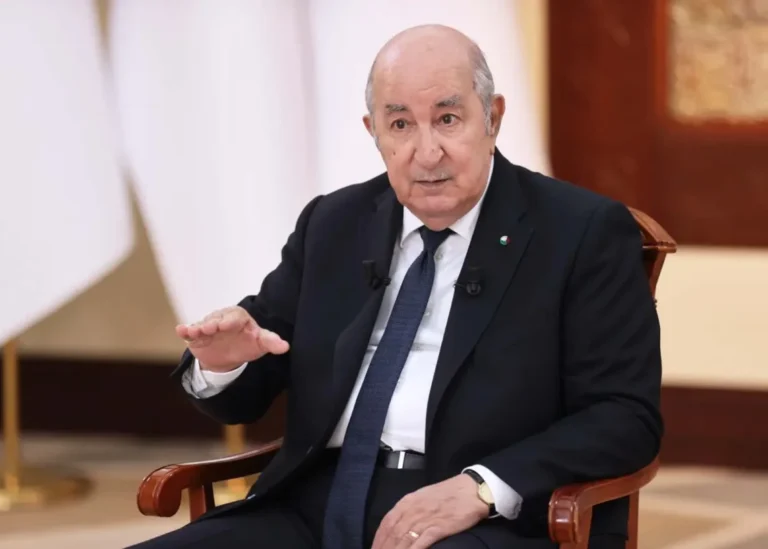Rabat — Algeria stubbornly clings to its outdated and isolated narrative on Western Sahara amid global support for Morocco’s cause.
Earlier this week, Algeria’s President Abdelmadjid Tebboune reaffirmed his country’s traditional stance, stating that his country will “never abandon Western Sahara.”
Tebboune made his remarks at the Ministry of National Defense headquarters on October 9.
Addressing officials from the People’s National Army, Tebboune claimed that his country would resolve “so that Sahrawis can have the opportunity to determine their own future.”
Tebboune also appeared visibly incensed and frustrated over the mounting global support for Morocco’s Autonomy Plan and sovereignty over its southern provinces.
His frustration comes as global powers, including the US, have been urging Algeria to play a constructive role in the UN-led political process.
The international community, including the UN, has long urged Algiers to shoulder its clear responsibility in the dispute and contribute to finding a mutually acceptable political solution.
However, Algeria continues to turn a deaf ear and clings to the claim that it is merely an “observer.”
The latest report by UN Secretary General Antonio Guterres once again documented Algeria’s claims, persisting in evading accountability and distancing itself from efforts to achieve a realistic and lasting settlement to the decades-old conflict.
In Paragraph 32 of the UN report, Guterres stressed that Algeria’s regime has repeatedly been reluctant to actively contribute to resolving the dispute.
“Foreign Minister Attaf reiterated his government’s continued support for direct talks between Morocco and Frente Polisario under the aegis of the United Nations, with the presence of Algeria and Mauritania,” the UNSG said.
Algeria’s regime continues to defy the international consensus in support of the autonomy plan, a framework openly supported by the US, UK, France, and a widening coalition of countries that see the proposal as the only pragmatic solution to the dispute.
Tebboune’s latest remarks on Thursday adopted a further defiant tone.
“Let them insult us and threaten us, we will not abandon Western Sahara,” he said, alleging that the dossier is a “question of decolonization issue, it is Africa’s last colony.”
He claimed that Algerians do not intend to be more Sahrawi than the Sahrawis themselves,” claiming that his country will support “any solution accepted by the Sahrawis.”
His claims starkly contradict the reality on the ground. Algeria’s regime has long provided political, financial, and logistical support to the Polisario. This separatist group continues to face calls to be designated as a terrorist organization rather than the legitimate representative of Sahrawis.
Algeria’s endorsement of the separatist group comes despite reports documenting the group’s involvement in human rights abuses, including war crimes, humiliation, and repression of Sahrawis in Tindouf camps, in addition to the embezzlement of international aid funds.
Border relations with Morocco
For several years, Morocco has been extending an olive branch to Algeria’s regime, hoping to see an end to the political stalemate between the two countries.
King Mohammed VI has long extended a reconciliation offer, renewing the importance of the reopening of Moroccan-Algerian borders, which have been closed since 1994.
In 2023, King Mohammed VI said: “We pray for a return to normality and for the opening of borders between our two neighboring sister countries and peoples.”
Algeria decided to close its border with Morocco when the Moroccan government imposed visa regulations on Algerian visitors in the wake of a terrorist attack on the Atlas Asni hostel in Marrakech.
Morocco lifted the visa requirement in 2004, but the border has remained closed.
In 2021, Algeria also decided to close its airspace and cut ties with Morocco.
On Thursday, Tebboune acknowledged efforts by mediators to resolve the stalemate between the two countries. Some reports suggested that Saudi Arabia is seeking to restore regional cooperation and ease tensions.
“Well-meaning brothers are asking us to open the borders. But the borders were not closed because of Western Sahara. They were closed for other reasons. In 63 years of independence, our borders have remained closed for over 45 years,” he claimed.


